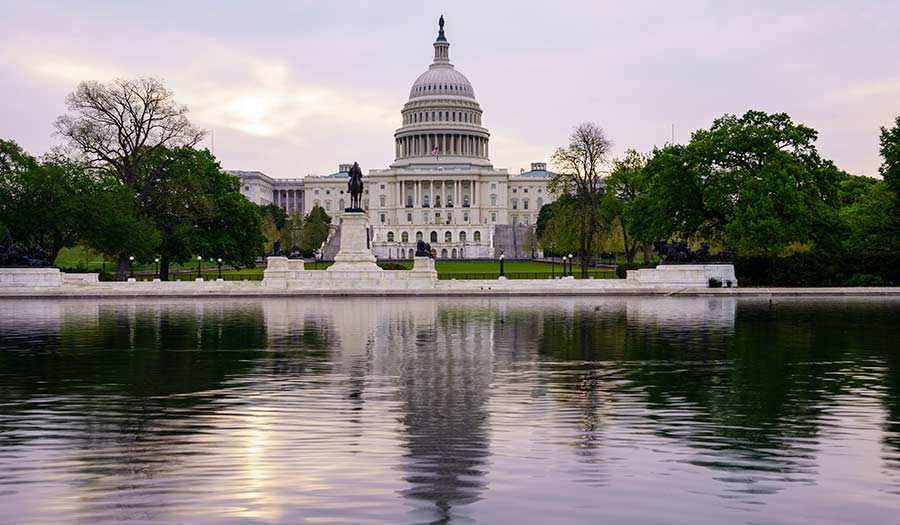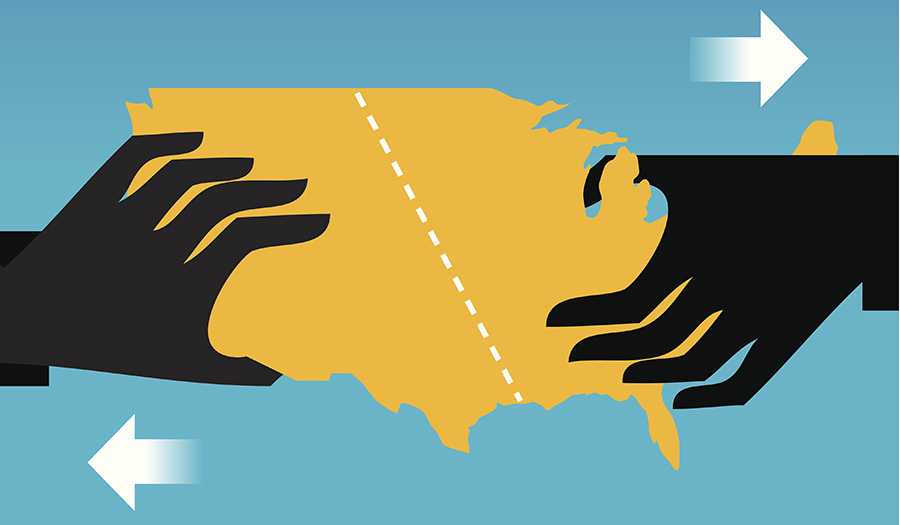 AP/J. Scott Applewhite
AP/J. Scott Applewhite
World News Desk
Learn the why behind the headlines.
Subscribe to the Real Truth for FREE news and analysis.
Subscribe NowThe Associated Press – Ten years after the 9/11 attacks, Americans were reasonably positive about the state of their rights and liberties. Today, after 20 years, not as much.
That is according to a poll by The Associated Press-NORC Center for Public Affairs Research that builds on work conducted in 2011, one decade after the pivotal moment in U.S. history. Some questions were also asked on polls conducted in 2013 and 2015.
Americans were relatively united around the idea that the government did a good job protecting many basic rights a decade after the terrorist attacks, which produced a massive overhaul of the country’s intelligence services and the creation of agencies such as the Department of Homeland Security. Along with those changes came a creeping concern about government overreach, although Americans as a whole remained fairly positive.
That attitude has eroded in the years since, with far fewer people now saying the government is doing a good job protecting rights including the freedom of speech, the right to vote, the right to bear arms and others.
For example, the poll finds that 45 percent of Americans now say they think the U.S. government is doing a good job defending freedom of speech, compared with 32 percent who say it is doing a poor job and 23 percent who say neither. The share saying the government is doing a good job is down from 71 percent in 2011 and from 59 percent in 2015.
About half now say the government is doing a good job protecting freedom of religion, compared with three-quarters who said the same in 2011.
More Americans now think the government is doing a poor job than a good one at protecting the right to equal protection under the law, 49 percent to 27 percent. In 2011, opinions were reversed, with more people saying the government was doing a good job than a poor one, 48 percent to 37 percent.
The poll also finds that 54 percent of Americans say it is “sometimes necessary for the government to sacrifice some rights and freedoms to fight terrorism,” compared with 64 percent a decade ago. Now, 44 percent say that is never necessary at all.
A majority of Democrats say it is sometimes necessary, which is largely consistent with previous AP-NORC polls. But Republicans are now closely divided, with 46 percent saying it is sometimes necessary and 53 percent saying it is never necessary. In 2011, 69 percent of Republicans said it was sometimes necessary, and 62 percent said the same in 2015.
Brandon Wilson, 23, a business and animation student at College of DePage in Glen Ellyn, Illinois who described himself as a conservative, said he understood that steps taken after September 11 may have initially seemed to constrain Americans’ rights, but that he ultimately felt the actions had been for the greater good.
“I think it’s a good idea,” Mr. Wilson said of measures such as increased airline passenger screening. “The government is helping the general public and, overall, trying to make people’s lives better.”
On the whole, though, Americans have grown more wary of government surveillance in the name of national security, the poll shows.
The poll asked about a variety of rights and liberties, including many of those outlined explicitly in the Constitution’s Bill of Rights, as well as several protected by laws and court rulings.
It finds 44 percent now say the government is doing a good job protecting the freedom of the press, compared with 26 percent who think the government is doing a poor job. In both 2011 and 2015, about 6 in 10 said the government was doing a good job.
Americans are about equally divided on how the government is doing at protecting the freedom from unreasonable search and seizure. About one-third say it is doing a good job and about one-third say it is doing a poor job. In 2011 and 2015, views were slightly more positive than negative, though less than half of Americans said the country was doing a good job.
Tony Gay, 60, a retiree who lives in Cincinnati, said that he generally supported the government’s moves to protect civil liberties. He said his 10 years of Army service helped reinforce his opinion that sacrifice is sometimes necessary to safeguard freedoms.
“You can’t have your freedom 24/7 if there’s no one there to protect it,” Mr. Gay said. “So when they put restrictions on travel, I’m all for that, because it’s to make sure that I’m safe, and make sure that the person next to me is safe.”
Forty-three percent of Americans think the U.S. government is doing a good job protecting the right to vote, while 37 percent say it is doing a poor job. By comparison, 70 percent said it was doing a good job in 2015 and 84 percent said the same in 2011.
Americans also are now divided on whether the government is doing a good or poor job protecting the right to bear arms, 35 percent to 36 percent, but in 2011, more said it was doing a good job than a poor one, 57 percent to 27 percent.
Democrats are more likely than Republicans to say the government is doing a good job of protecting several rights and freedoms, including the freedom of religion, the freedom of speech, the freedom of the press and the right to keep and bear arms.
But Democrats are somewhat more likely than Republicans to say the government is doing a poor job enforcing equal protection under the law, 54 percent to 46 percent. Views among Democrats and Republicans are largely similar on how well the government is protecting the right to vote, and the views among both have become notably less positive than in the earlier polls.
Even if he is relatively comfortable with the government’s protection of basic civil liberties, Mr. Gay said he feels periodic review of the policies, and those making them, should be necessary.
“It’s like when you’re in politics, you have free rein,” Mr. Gay said. “It gives me mixed feelings about who is watching over us.”
- Real Truth Magazine Articles
- POLITICS
 What Happened to America?
What Happened to America?
More on Related Topics:
- Democracy Declined for 8th Straight Year Around the Globe, Institute Finds
- What God Looks for in Leaders
- The 2024 Presidential Election: A Bible-based Survival Guide
- Over 50 Countries Go to the Polls in 2024. Here’s What You Should Know.
- Explainer: What Republicans and Democrats Want to Do on U.S.-Mexico Border Security


